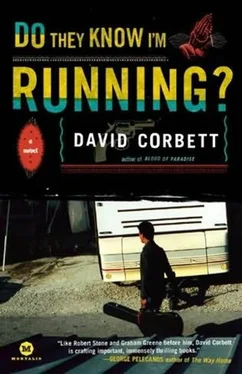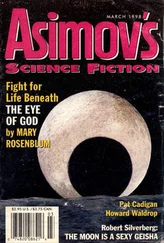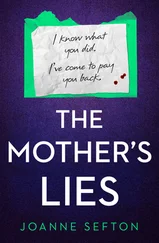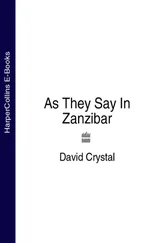They had known that while the Commander sat with them, indulging his taste for rancheras , his men had been busy trying to determine who the four strangers they’d saved really were. For fear of the consequences if they were discovered holding anything back, Roque had explained their arrangement-the payment to Lonely and his network of smugglers, all aligned with Mara Salvatrucha. El Chusquero had responded that the gunmen at the roadblock had been members of the salvatruchos’ main rival, Mara Dieciocho. Someone had tipped off the pistoleros about the border crossing and they’d hoped to kidnap the four of them, kill them in some strikingly memorable way, post the video on the Web and discredit their enemies’ operation, show that Lonely and the salvatruchos could protect no one, the better to move in, claim their share of the lucrative racket of moving people and product north. But none of this was entirely clear. So much of what the Commander said came larded with a caustic if dull-witted irony, as though anything he actually chose to tell you was in essence a kind of joke. And he’d said nothing about how his own men happened to come along at just the right time, nor about any mara affiliation of his own. Roque suspected the man had no such ties except to the incarcerated Colonel Villagrán, which brought to mind the hideous prison-riot photos. You see the fate of our enemies. But who, exactly, were those enemies? Who wasn’t?
Chepito led them to a room in the basement that reeked of mildew and body odor. As though to parody the Commander’s Spartan sense of decor, it was totally devoid of furniture. Tío Faustino, Samir and a third man sat cross-legged on the bare cement floor with a deck of worn playing cards, engaged in a game of canasta. The stranger was twentyish, gaunt, unshaven, his hair stiff from lack of washing and his uncut fingernails rimmed with grime. His sunken stare resembled an animal’s, though from dread or hunger or just raw tedium it was hard to tell.
Lupe immediately fled to a corner, dropped to her haunches, tucked up her knees and covered her head with her arms. Samir shot her a glance of naked contempt. Tío Faustino, wiping a glaze of sweat from his face, glanced at Roque inquiringly but he responded with a shake of his head, set the guitar down with a ringing thud, then dropped to the floor himself, using the instrument for a pillow as he lay on his back, draping an arm across his eyes. He felt impossibly tired, the adrenalin jag of the past few hours draining away like a toxic dream.
Samir, using Spanish for the sake of the stranger, said to Roque:- Guess how long our new friend here has been trapped inside this house?
By way of introduction, the stranger interjected:- My name is Sergio . His voice was faint, trebly, educated.
Peeking out from under his arm, Roque saw an unwashed hand snaking through the air in his direction. Lifting himself up on an elbow, he squelched his queasiness, shook it.- Roque .
– Oh I know. I’ve heard so much, so much about you. And Lupe .
The girl’s name arched across the room, a lobbed pitch. She did not swing.
Sergio turned back to the men.- It’s been wonderful, having someone to talk to, you have no idea. And canasta, not just solitaire. A miracle .
He beamed like a schoolboy, clutching his fanned cards to his chest. Roque suppressed a mild case of the creeps.
– Tell him how long you’ve been here , Samir prompted.
– Oh, yes. Yes. Nine and a half months. As of last Wednesday .
Samir shot Roque a baleful glance, saying in English. “Let me tell you something, I’ll kill somebody before I stay here nine and a half months.”
– His family can’t come up with the ransom , Tío Faustino offered.
– It’s far too much money. Far too much . Sergio chafed a hand beneath his nose, then swept it through his hair.- They think my family is rich. We’re not. We’re merchants. Appliances: stoves, refrigerators, washers, dryers. We have eight stores, in five towns, here and there across the country. But that’s nothing. We own no land. We have no political connections. We do not belong to society. We work. My family has not forgotten me, don’t think that. No. But the ransom is impossible. Too much, too much .
Tío Faustino drew a card from the stock, arranged it in his hand, then placed a six of spades faceup in the discard pile. Everyone knew the stories, hostages held for seven to ten years, some killed when it became clear the family would never come up with the money, sometimes even when they did. He shuddered, thinking if mere months could reduce a man to this, what would years do? To change the subject, he leaned a little closer, lowering his voice so no one stationed at the door might overhear.- Sergio, what is it with El Chusquero, this colonel in prison? Are these guys soldiers or gangsters?
– Both! Good God, both, of course. Both . Though it wasn’t yet his turn, Sergio took a second to review his hand and the melds arranged before him, tapping his cards expectantly with his filthy middle finger.- You haven’t heard of Los Zetas? Mexican commandos working for the Gulf cartel. Assassins. They were trained by Kaibil officers like El Chusquero. They’re notorious .
Roque watched Samir draw a card, puzzle over it, grimace, toss it down onto the discard pile.
Sergio was next. He drew a card, screwed up his face, played it on a meld of sevens, smiling absently at this small success.- The military is the mafia here. The army refused American aid because it came with strings attached. Human rights conditions. They laughed at that. They got their arms from Israel, Argentina. The CIA helped of course. And unlike El Salvador, they won their war. Using butchery, indiscriminate slaughter, with spies and informants everywhere, scaring everyone into silence. Worse, complicity. That kind of power, when no one can touch you, what to do with all of that once the last shot’s fired? Take over the national police, tell the Colombian and Mexican cartels you’re open for business . He laid down his discard as though applying the final touch to a painting, then folded up his hand and rapped it pensively against his chin.- They say two-thirds of the cocaine reaching America passes through Guatemala. Maybe more .
The door opened. Chepito appeared again, accompanied this time by another of their rescuers out on the road. The young man was armed as he had been then, a semiautomatic rifle, bearing himself with a vacant intensity. Chepito gestured for the four newcomers to follow along, nailing Sergio with a hard stare that told him to stay put. Roque dared to believe they were going to be freed, even as the price of that luck seemed clear. Sergio erupted into helpless chatter, the words tumbling out even more manically than before, almost birdlike in tenor, thanking them all for playing cards, asking that they perhaps maybe if at all possible contact his family-no one else, of course, the police, the press, nothing so bold-just his mother, his father, his sisters, let them know he was alive, inform them he was well, instruct them to do whatever they were told to do if they were contacted. He wanted to come home. He prayed every day and night to see them again.
– Do whatever El Chusquero says , he called out as the door clicked shut.- Do nothing to jeopardize yourselves. Or me .
Securing the padlock on the door, Chepito chuckled. “Pobre hueco.” Poor faggot.
Shortly they stood assembled in the bare white room before the massive Guatemalan flag. The Commander as before sat at his desk, rocking in his chair, neither beaming nor glowering, his thumb to his mouth as he chewed the nail pensively. The array of weapons and the glass cage with its little black riot inside remained exactly where Roque had seen them last, the scorpions earning a helpless shudder from Lupe, a furtive glance from Tío Faustino, a smile of admiring revulsion from Samir. Apparently El Chusquero gave no thought to the chance someone might grab a knife or the bayonet or the nunchuks, put up a fight, make a run for the door, not with Chepito’s sidekick standing behind them, his safety off.
Читать дальше












